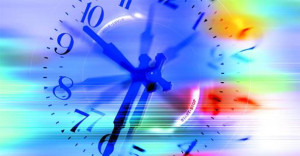
In modern pop sci, no series has been able to capture the essence of time travel in the way Doctor Who has for the last 50 years. It should come as no surprise that scientists have taken the time to look into the feasibility of the physics driving time travel in whoovian mythology (*Spoiler alert* the TARDIS isn’t nearly as unscientific as it might sound).
The laws of physics do not strictly forbid traveling through time, but one must concede that the issue is blotted in uncertainty because of a plethora technological limitations and even more paradoxes. Now, researchers from the University of Queensland have purportedly simulated time travel. And the manner is likely not what you think it is…
The team was led by Martin Ringbauer, an author and a scholar from UQ’s School of Mathematics and Physics. They essentially combined tenets of two of the most immeasurably important theories that were ever put forth to describe the universe: General relativity and quantum mechanics. These theories that are seemingly contradictory (which caused Einstein to be fiercely skeptical of quantum mechanics, leading other scientists to eventually call this skepticism “Einstein’s biggest blunder”). General relativity describes the universe on a macroscale (from stars and galaxies, to black holes), while quantum mechanics describes the universe at a microscale (from photons and quarks, to molecules).
Read the full story at: From Quarks to Quasars





